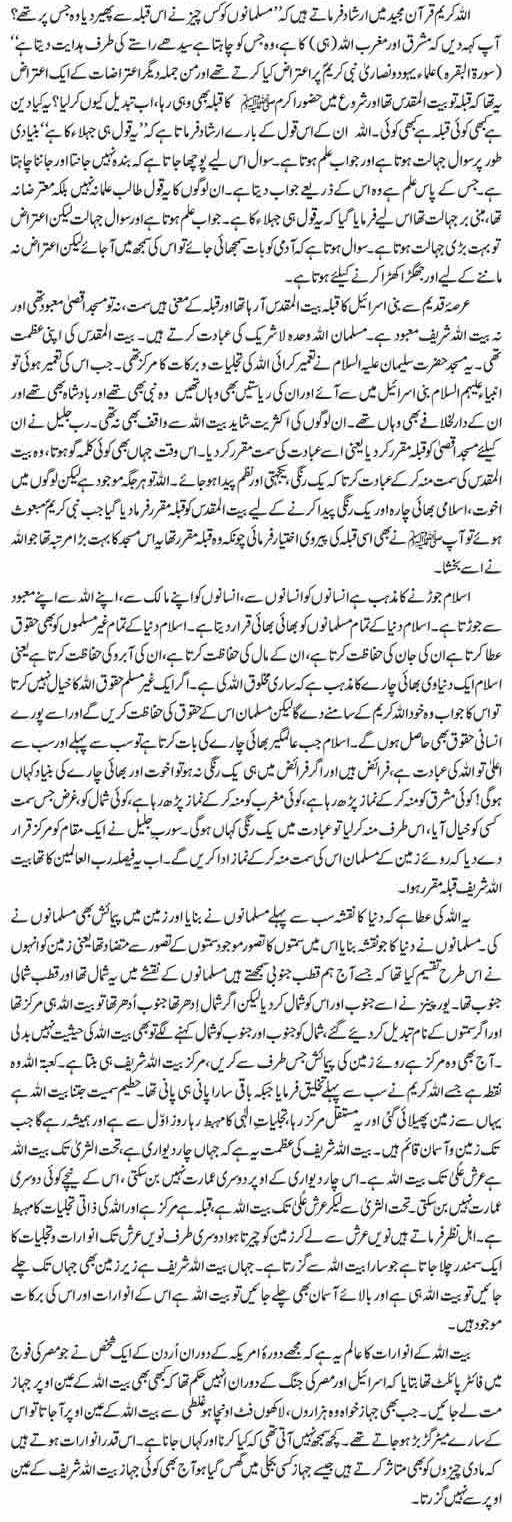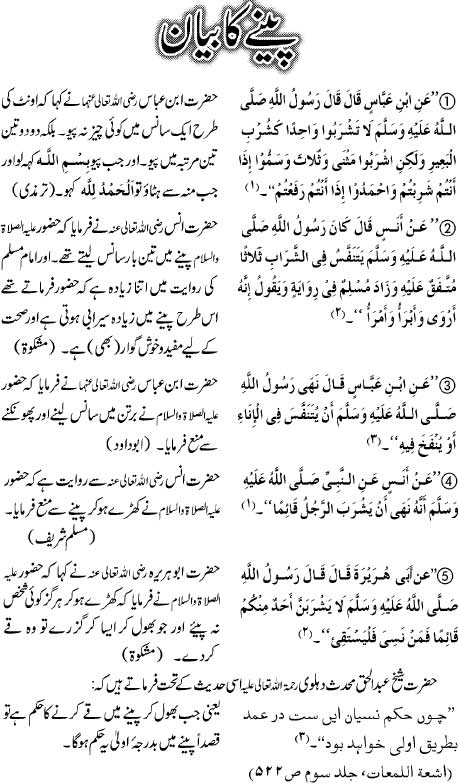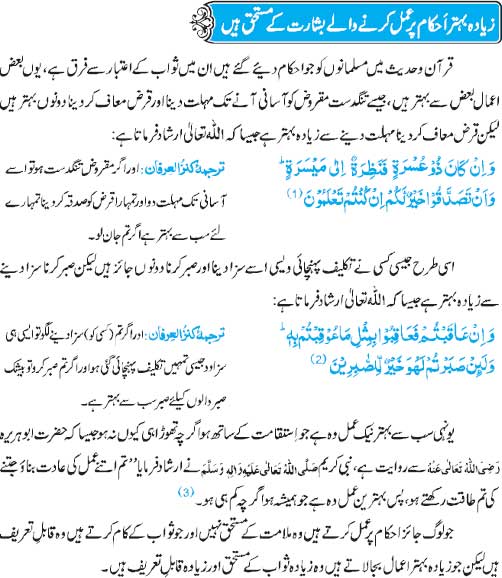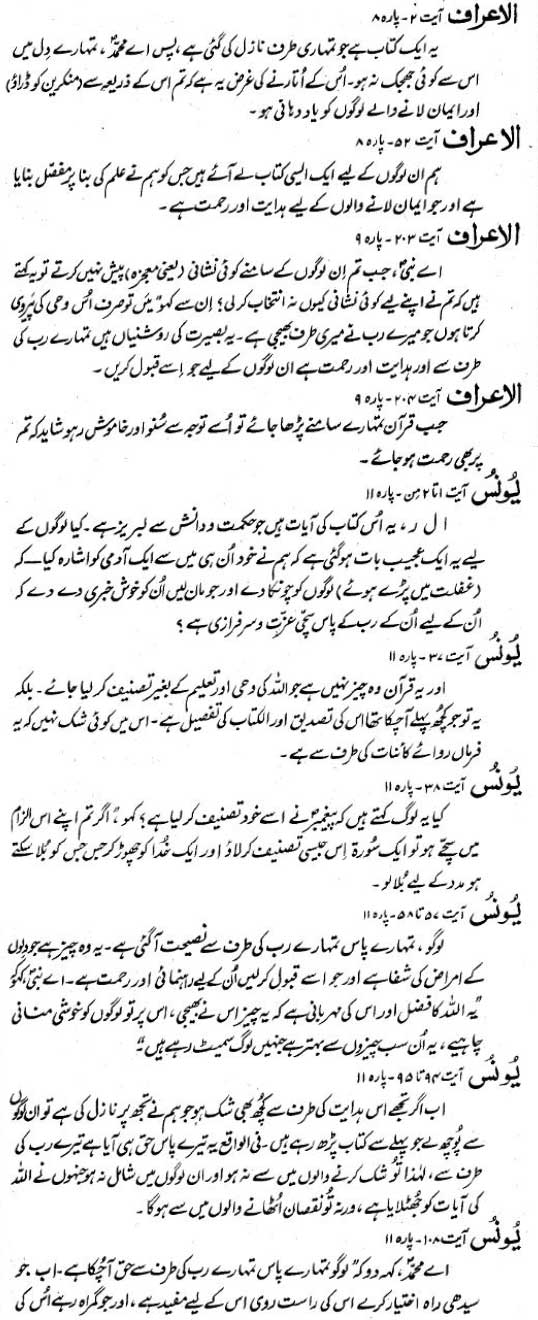
Divorce In Islam
Islam regards the marriage bonds as sacred and blessed. As such, Islam is keen to strengthen the relationship between the two spouses. Allah (subhanahu wa taala) indicates the great value of the marriage bond in Quran Sura Nisa (4:21):” And how could ye take it when ye have gone in unto each other and they have taken from you a solemn covenant”.
In fact, Allah’s Messenger (peace and blessings of Allah be upon him) is reported to have said, which read as follows:” Iblis [Satan], places his throne on water and sends his troops. The closest one [of his troops to him] is that who has the greatest trail and temptation [to mankind]. As such, Satan would bring that member of his troop closer to him [in honor and respect for what he did]. One of the members of Satan’s troops would come forward and reports what [evil activities] he did. Satan would comment: ‘You did not do anything. Then another one of his troops would come forward and report: I did not leave that man [a husband] until I separated him from his wife. Satan would bring that one of the members of his troop closer to him [in honor and respect] saying: Yes indeed. It is you [who deserves the honor]” [65].
Similarly, Allah’s Messenger (peace and blessings of Allah be upon him) demonstrated the respect and honor of the marriage bond by saying, which read as follows:” He is not considered among us [Muslims], who turns a woman against her husband” [66].
Although Islam places great importance on marriage integrity and declares it holy and honorable, yet Islam legalizes divorce that breaks this great bond. Nevertheless, Allah’s Messenger (peace and blessings of Allah be upon him) is reported to have described divorce, which read as follows:” The most hatred lawful item in the Sight of Allah (subhanahu wa taala) is divorce” [67].
Islam reached this decision when marriage reaches a dead end between the two spouses and there is no other solution except divorce. Islam is keen to protect the Muslim family and the Islamic society.
The anti-social behavior of the husband or wife can cause chaos in society. Such chaos may very well lead to mixed lineage, falsified inheritance, deprivation of genuine rights, and the spread of indecency in the community.
Although divorce is lawful, it is still well restricted. In fact, divorce is not a toy in the hand of the person, which he may use it anyway when he or she likes. Muslim scholars illustrate that divorce must take one of the four following forms:
Divorce may be compulsory when the two assigned referees decide it in the case of the disputed spouses.
Allah (subhanahu wa taala) states in Quran Sura Nisa (4:35):” If ye fear a breach between them twain, appoint (two) arbiters, one from his family, and the other from hers; if they wish for peace, Allah will cause their reconciliation: for Allah hath full knowledge, and is acquainted with all things”.
Divorce is unlawful if there is no sound and visible reason or ground for it.
Divorce is permissible if the husband or wife is vicious in terms of character and attitudes.
Divorce is required, if the husband or wife is not committed to the Islamic teachings, or if she is indecent or vulgar.
- August, 14
- 2559
- Human Rights
- More
Cheenk Aur Jamahi Kay Ahkam

Nine Great Benefits Of Reciting The Quran
Indeed to reflect on Allah’s verses is a form of worship that will draw one close to Allah Most High. This reflection is not a reckless and wandering one, rather it includes a study of the classical Tafseer of the verses being pondered over, as this would fulfill Ibnul-Qayyim’s great advice, “Such as reflecting over a book which a person has memorized and he expounds it so that he may understand what its author intends by it.”
Indeed the Book of Allah is not a book like any other, it is the timeless Speech of Allah, not a created thing, the study guide for life and death and what comes after. Therefore it deserves a more careful study than anyone else’s speech. It necessitates that its reader return to the early narrations of those who witnessed its revelation and heard its explanation by the one deputed by Allah to rehearse and explain His Words to humanity (sallallaahu ‘alaihi wa sallam). For if one would try to ponder over the meanings of the verses without having done this study, then surely the filth of the time that he lives in and his ignorance of the correct application and understanding that the early Muslims had would cause him to understand some things not intended by Allah Most High, and therefore he would go astray, thinking to be worshipping Allah. So every sincere Muslim who hopes to earn Allah’s Love reciting and reflecting over Allah’s Book, then let him hold tight to the meanings explained by the Prophet (sallallaahu ‘alaihi wa sallam), and those taught by the companions and their immediate followers, and the early scholars of Islam.
So dear brother and sister Muslim! Know that reciting and pondering over the Book of Allah, devoting your time regularly to its study and implementation has tremendous benefits in this life and the Next, so let us now look to just a few of them to attach ourselves more firmly to Allah’s Majestic Words. Each benefit stands as enough of an encouragement to shun any laziness we have and dedicate ourselves to the Qur’an.
1 – Reading and reflecting over the Qur’an fulfills an Islamic duty.
Indeed the Prophet (sallallaahu ‘alaihi wa sallam) summarised this Religion with his statement: “The Religion is naseehah (sincerity)!” So then Tameem ibn Aws, may Allah be pleased with him, then said, “We asked, ‘To whom?'” He said: “To Allah, HIS BOOK, His Messenger, the leaders of the people, and their common folk.” [Muslim] The sincerity that is due to the Book of Allah includes its regular recitation, learning the rules of tajweed and reciting it beautifully, learning about its Tafseer and the reasons for its revelation, affirming that it is the Truth, the perfect Speech of Allah and not part of the creation, honoring it and defending it, abiding by the orders and prohibitions found in it, teaching it and calling to it. [See Jaami’ul-‘Uloom wal-Hikam of Ibn Rajab Al-Hambalee] So by reading and reflecting over the Qur’an, one fulfills an obligation and is rewarded for that. Upon fulfilling this obligation, the Qur’an then becomes proof for him on the Day of Judgment! And that is the second benefit we will take by embracing this Noble Book…
2 – The Qur’an will be proof for us on the Day of Judgment.
This is due to the statement of the Messenger: “And the Qur’an is a proof for you or against you.” [Muslim] So one of two things will occur with this proof, the Book of Allah. It will either be in your favor, a proof for you on the Day when you will need every single good deed, or it will be something standing against you, the very Speech of your Creator, a proof against you! Who could be saved from the terrors of that Day if Allah’s own Speech is against him?! Think carefully, dear Muslim brother or sister, about your position with the Qur’an! Are you neglecting it, contradicting it, being heedless of its orders and prohibitions, are you thinking deeply over it?! Will it be on your side on the Day of Judgment.?! O, Allah! We ask you, by Your Glorious Speech and the rest of your beautiful Names and Attributes, to make the Qur’an a proof for us! O, Allah! Don’t make the Qur’an a proof against us on that Day, and save us from the hellfire! For if Allah makes the Qur’an a proof in our favor on that Day, then it would also be an intercessor for us when NO intercession will take place except by His Permission.
3 – The Qur’an will intercede for us on the Day of Judgment.
The proof: Aboo Umaamah relates that the Prophet (sallallaahu ‘alaihi wa sallam) said: “Read the Qur’an, for verily it will come on the Day of Standing as an intercessor for its companions.” [Muslim]
4 – Your status in this life will be raised.
In Saheeh Muslim, we find a lovely story, about how a man from the people of Jannah, ‘Umar ibn Al-Khattaab, understood this principle. Some men came to question him during his Khilafah about the leadership of Makkah, they asked, “Who do you use to govern Makkah?” He said, “Ibn Abzaa.” They asked, “And who is Ibn Abzaa?” Umar replied, “A freed slave from those we freed.” They remarked, “You left a freed slave in charge of the people of the Valley (the noble tribes of the Quraysh)!?” So he answered them, “Verily he is a reader of the Book of Allah and is knowledgeable about the obligations of the Muslims. Haven’t you heard the statement of your Messenger: “Verily Allah raises some people by this Book and lowers others by it.”
5 – You will be from the best of the people.
‘Uthmaan, may Allah be pleased with him, said that the Prophet (sallallaahu ‘alaihi wa sallam) said: “The best of you are the ones who learn the Qur’an and teach it to others” [Al-Bukhari]
6 – There are ten rewards for each letter you recite from the Qur’an.
As an authentic hadith in At-Tirmithee proves: “Whoever reads a letter from the Book of Allah, he will have a reward. And that reward will be multiplied by ten. I am not saying that “Alif, Laam, Meem” is a letter, rather I am saying that “Alif” is a letter, “laam” is a letter and “meem” is a letter.” So increase your recitation of the Qur’an to gain these merits, and to gain the following merit as well.
7 – The reciters of the Qur’an will be in the company of the noble and obedient angels.
‘Aa’ishah, may Allah be pleased with her, relates that the Prophet (sallallaahu ‘alaihi wa sallam) said: “Verily the one who recites the Qur’an beautifully, smoothly, and precisely, he will be in the company of the noble and obedient angels. And as for the one who recites with difficulty, stammering or stumbling through its verses, then he will have TWICE that reward.” [Al-Bukhari and Muslim]
So dear brother or sister Muslim, do not let the Shaytaan give you false excuses, such as “I am not an ‘Arab,” or “It is not my language.” This hadith is firm proof against these whisperings. Dedicate yourself to the Book of Allah, whether you are an ‘Arab or not! The excuses have been eliminated and the pathway has been cleared for you to embrace the Book of Allah without holding back or offering excuses! And surely you will not hesitate to seek a teacher or a study circle for the Qur’an once you hear the last and perhaps greatest benefits of reading and contemplating over the Qur’an…
8 – Your position in Paradise is determined by the amount of Qur’an you memorize in this life!
‘Abdullaah ibn ‘Amr ibn Al-‘Aas heard the Prophet (sallallaahu ‘alaihi wa sallam) saying: “It will be said to the companion of the Qur’an: Read and elevate (through the levels of the Paradise) and beautify your voice as you used to do when you were in the Dunya! For verily, your position in the Paradise will be at the last verse you recite!” [Aboo Daawood and At-Tirmithee, saheeh]
9 – The Qur’an will lead you to Paradise!
The Prophet said: “The Qur’an is an intercessor, something has given permission to intercede, and it is rightfully believed in. Whoever puts it in front of him, it will lead him to Paradise; whoever puts it behind him, it will steer him to the Hellfire.” [An authentic hadith found in At-Tabaraanee, on the authority of ‘Abdullaah ibn Mas’ood] Know, dear brother or sister, that these nine benefits from the many benefits available can only be attained by a sincere commitment to the Book of Allah, not by a person’s mere statement, “I love the Qur’an, it’s beautiful.” Rather the heart must be sincerely attached to Allah’s Book and the limbs and tongue will follow in this attachment. You must know that we only mentioned a few of the numerous benefits of reading and reflecting on the Qur’an. There are many benefits that await your reading in the Qur’an and books of hadith, like the chapter of the Qur’an that will argue on your behalf in the grave, and that it is physical healing, a source of rest and relaxation for your heart, among many other things. And Allah knows best. (Taken from Look 4 Islam)
Peenay Kay Ahkam

About Prophet’s Mosque
1. The Prophet’s Mosque in Madina is the second holiest mosque in Islam. Al-Masjid Al-Haram in Makkah is the holiest mosque; the Al-Aqsa Mosque is the third holiest in Islam. The original Prophet’s Mosque was built by Prophet Muhammad (PBUH) himself, next to the house where he settled after his Hijrah to Madina in 622 AD.
2. The original mosque was an open-air building with a raised platform for the reading of the Qur’an. It was a square enclosure of 30×35 meters, built with palm trunks and mud walls, and accessed through three doors: Bab Rahmah to the south, Bab Jibril to the west, and Bab al-Nisa’ to the east. The basic plan of the building has since been adopted in the building of other mosques throughout the world. Inside, the Prophet created a shaded area to the south called the Suffah and aligned the prayer space facing north towards Masjid Al-Aqsa. When the qibla (prayer direction) was changed to Makkah, the mosque was re-oriented to the south.
3. Following its establishment, the Masjid Al-Nabawi continued to introduce some of the practices now considered common in today’s mosques. For example, the adhan, or call to prayer, was developed in the form still used in mosques today. The Masjid Al-Nabawi was built with a large courtyard, a motif common among mosques built since then. The Prophet’s Mosque served many purposes: negotiations were conducted, military actions planned, disputes settled, religious information disseminated.
Zyada Behtar Ahkam Par Amal Karnay Walay

The Prophet Married Aisha For The Benefit Of Islam And Humanity
1. The Prophet married Aisha primarily for three reasons:
- To reinforce the friendly relations already existing with Abu Bakr (his closest companion).
- To educate and train Aisha for the purposes of Islam.
- To utilize her capabilities for the sake of Islam.
2. Her Marriage with the prophet was a Wahy (Divine Revelation). She, herself relates from the Prophet. “He said, ‘I saw you in dreams three times. The angel brought you to me and you were clad in white silk. He (the angel) said that it was your consort and he (angel) showed me by opening your face. You are just like that…” Sahih Muslim, Vol.2, p. 285.
3. Aisha (r.a.) was born after her parents had embraced Islam. Therefore, she was free from the defilement of polytheism right from her birth.
4. In her youth, already known for her striking beauty and her formidable memory, she came under the loving care and attention of the Prophet himself. As his wife and close companion, she acquired from him knowledge and insight such as no woman has ever acquired.
Aisha lived on almost fifty years after the passing away of the Prophet. She had been his wife for a decade. Much of this time was spent learning and acquiring knowledge of the two most important sources of God’s guidance, the Qur’an and the Sunnah of His Prophet. Aisha ( r.a.) was one of the three wives (the other two being Hafsa (r.a.) and Umm Salama (r.a.) who memorized the Revelation. Like Hafsa (r.a.), she had her own script of the Qur’an written after the Prophet had died.
So far as the Hadith or sayings of the Prophet is concerned, Aisha ( r.a.) is one of four persons (the others being Abu Hurayra, Abdullah ibn Umar, and Anas ibn Malik) who transmitted more than two thousand sayings. From her, 2210 Hadith have come, out of which 174 Hadith are commonly agreed upon by both Bukhari and Muslim.
Many of her transmissions pertain to some of the most intimate aspects of personal behavior which only someone in Aisha’s position could have learnt. What is most important is that her knowledge of Hadith was passed on in written form by at least three persons including her nephew Urwah who became one of the greatest scholars among the generation after the Companions.
It is the claim of the Scholars of Islam that without her, half of the Ilm-I-Hadith [knowledge, understanding of the Hadith (and Islam)] would have perished.
5. Many of the learned companions of the Prophet and their followers benefited from Aishah’s knowledge.
Abu Musa al-Ash’ari once said: “If we companions of the Messenger of God had any difficulty on a matter, we asked Aisha about it.”
“Yahya related to me from Malik from Yahya ibn Said from Said ibn al-Musayyab that Abu Musa al-Ash’ari came to Aisha, the wife of the Prophet, may Allah bless him and grant him peace, and said to her, “The disagreement of the companions in a matter which I hate to bring before you has distressed me.” She said, “What is that? You did not ask your mother about it, so ask me.” He said, “A man penetrates his wife, but becomes listless and does not ejaculate. “She said, “When the circumcised part passes the circumcised part ghusl is obligatory.” Abu Musa added, “I shall never ask anyone about this after you.” Al-Muwatta of Imam Malik, Hadith 2.75.
Arwa Bin Zubair says, “I did not find anyone more proficient [than Aisha (r.a.)] in the knowledge of the Holy Qur’an, the Commandments of Halal (lawful) and Haram (prohibited), Ilmul-Ansab and Arabic poetry. That is why even senior companions of the Prophet used to consult Aisha ( r.a.) in resolving intricate issues”. Ibn Qayyim and Ibn Sa’ad, Jala-ul-Afham, vol. 2, p. 26.
Abu Musa al-Ash’ari says: “Never had we (the companions) had any difficulty for the solution of which we approached Aisha and did not get some useful information from her”.
Sirat-I-Aisha, on the authority of Trimidhi, p. 163.
6. As a teacher she had a clear and persuasive manner of speech and her power of oratory has been described in superlative terms by al-Ahnaf who said: “I have heard speeches of Abu Bakr and Umar, Uthman and Ali and the Khulafa up to this day, but I have not heard speech more persuasive and more beautiful from the mouth of any person than from the mouth of Aisha.”
The Prophet said, “The superiority of ‘Aisha to other ladies is like the superiority of Tharid ( i.e. meat and bread dish) to other meals. Many men reached the level of perfection, but no woman reached such a level except Mary, the daughter of Imran and Asia, the wife of Pharaoh.” Sahih Al-Bukhari Hadith, Narrated by Abu Musa Al-Ash’ari Hadith 4.643.
Musa Ibn Talha (r.a.) says, “I did not see anyone more eloquent than Aisha (r.a.)”. Mustadrak of Hakim, vol.4, p.11.
7. Men and women came from far and wide to benefit from her knowledge.
Aisha’s great interest in the study of the Qur’an is understandable. She was an eye-witness to a number of revelations and had therefore a clear idea of the circumstances in which they were revealed. It was on her bed alone (and no other consort’s) that the Prophet received Wahy (Divine Revelations) several times. This helped her in interpreting the verses.
8. At the time of the Prophet’s death, the Prophet’s head was on her lap. It was in her quarters that the Prophet was buried.
The life of Aisha (R) is proof that a woman can be far more learned than men and that she can be the teacher of scholars and experts. Her life is also proof that a woman can exert influence over men and women and provide them with inspiration and leadership. Aisha (R) is a continuing inspiration and role model to today’s youth who are diligently searching for an example amongst pop stars, movie actresses, and sports stars. May the memory of her’s life forever in the heart of the Muslim Ummah and may Allah grant her the highest abode in Paradise…Ameen.
Conclusion
It was the aforementioned qualities of Aisha ( r.a.) and the Prophet’s guidance in molding these capabilities for the service of Islam, were the main reasons, why the Prophet Married young Aisha (r.a.), and not the perverted reasons brought forth by misguided orientalists.
Muslims invite all sincere humans to study the life of Prophet Muhammad (peace be upon) in the light of the authentic sources of the Qur’an and the Sunnah (exemplary sayings and deeds of the Prophet) and judge for themselves where the truth lies. Indeed, by recognizing the truth of Islam as the final and complete Guidance sent by our Creator can humanity find lasting peace in this world and a means of salvation from the hellfire in the hereafter.
“I have studied him – the wonderful man and in my opinion far from being an anti-Christ, he must be called the Saviour of Humanity. I believe that if a man like him were to assume the dictatorship of the modern world, he would succeed in solving its problems in a way that would bring it the much-needed peace and happiness: I have prophesied about the faith of Muhammad that it would be acceptable to the Europe of tomorrow as it is beginning to be acceptable to the Europe of today.”
George Bernard Shaw, The Genuine Islam, vol. 1, no. 81936.
Though the Prophet is not among us in his flesh, his exemplary life has been preserved for all humanity to follow.
When Truth comes Falsehood disappears, Islam came, now Shirk (polytheism) must clear.
Welcome to Islam…
Quran Majeed Ki Sifaat (Part 4)
Dream Prophecies Come True
In describing the victory of Damascus, Syed Mullah Muhammad Wakedi writes that the Muslim forces endured extreme hardship during the war.
Hazrat Abu Obaida (radi Allah unhu) dreamed of the Beloved Prophet (Sallallahu Alaihe Wa Sallam) near the end of the war. In the dream, the Beloved Messenger of Allah (Sallallahu Alaihe Wa Sallam) declared: Insha’Allah, the city will be conquered tonight. After this, the Beloved Prophet (Sallallahu Alaihe Wa Sallam) expressed his desire to leave. At this Hazrat Abu Obaida (radi Allah unhu) humbly stated: Oh Prophet of Allah! (sallallahu alaihe wa sallam), you are leaving very soon.â The Beloved Prophet (Sallallahu Alaihe Wa Sallam) replied: I have to attend the funeral prayer of Abu Bakr.â
The subsequent events confirmed the prophecies contained in the dream. Damascus was conquered on the very night Hazrat Abu Obaida (radi Allah unhu) dreamed the Beloved Prophet (Sallallahu Alaihe Wa Sallam). It also turned out that Hazrat Abu Bakr (radi Allah unhu) passed away on the same night.
In the morning, Hazrat Abu Obaida (radi Allah unhu) received the good news of the victory of Damascus from Hazrat Abu Huraira (radi Allah unhu). Hazrat Abu Obaida (radi Allah unhu) did not find it necessary to further confirm the victory of Damascus since he had already received the news earlier in his dream. Hazrat Abu Obaida (radi Allah unhu) entered Damascus on Monday, the 11th Jamadi-us-Sani in 13 Hijri.




